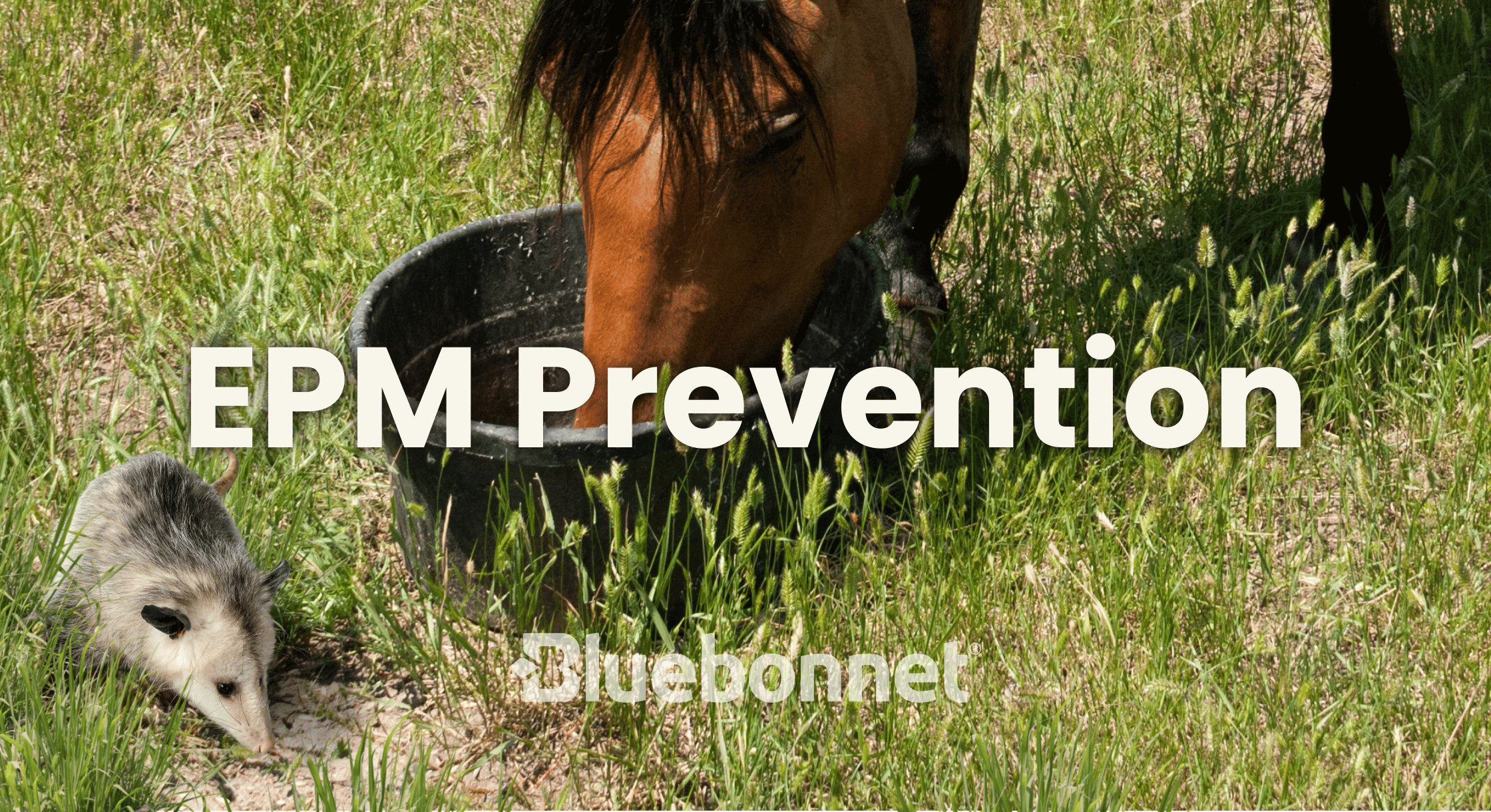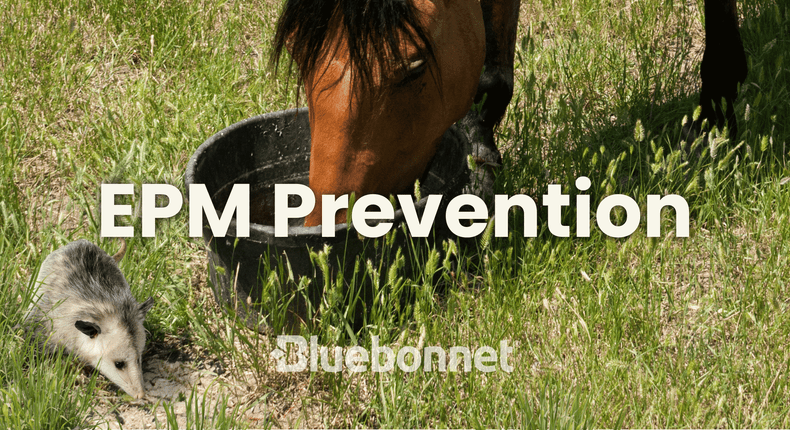
Equine protozoal myeloencephalitis (EPM) is a neurologic disease caused by a parasite that attacks the brain and spinal cord of horses. The parasite, Sarcocystis neruona, can seriously damage a horse’s central nervous system leading to short- or long-term damage and even death if not caught and treated early. Researchers have determined that horses younger than 5 years of age and older than 13 are more likely to contract EPM, and most cases happen in the spring, summer and fall.
How does a horse get EPM?
Horses become infected when they eat food that has come into contact with opossum feces. Opossums are the primary host for the EPM causing parasite. The parasite’s life cycle requires a short stay in the digestive tract of the opossum where it reproduces and sheds sporocysts. Sporocysts are shed in the opossum’s feces which then infect pasture grass, hay, feed, and even water.
Once a horse eats contaminated feed, hay or water, sporozites enter the body through the intestines and travel via blood vessels. Sporozites move to the liver where they reproduce into merozoites, and from there the merozoites travel to the brain and spinal cord. Once in the central nervous system, merozoites infect neural cells causing pressure on surrounding nervous tissue. Neural cells die and more merozoites are released creating a continuous cycle of deterioration within the central nervous system.
What are the signs of EPM?
As cells in the nervous system die, the horse may begin to exhibit subtle signs such as mild depression, gait abnormalities, and irregular upper airway function. More severe signs include incoordination, muscle wasting, inability to stand, seizures, stumbling, and other neurologic signs.
EPM can be difficult to diagnose because the signs can look similar to those caused by other diseases such as wobbler syndrome, rabies, West Nile virus, equine herpes virus, and equine motor neuron disease. It is always best to contact your veterinarian right away if you suspect anything out of the ordinary with your horse.
I suspect my horse has EPM, now what?
If treated quickly horses can recover from EPM, so get into contact with your veterinarian right away. There are blood tests that can be performed and several treatment options are available including Marquis® (ponazuril), Navigator® (nitazoxanide), ReBalanceTM (sulfadiazine and pyrimethamine), and Protazil® (diclazuril). Many horses show the most improvement within the first four weeks of treatment.
Supplementing the diet with antioxidants and omega-3 fatty acids can be helpful in supporting damaged nervous and muscle tissue. Nutritionists and veterinarians may recommend feeding extra vitamin E along with a supplement containing high levels of omega-3 fatty acids from green lipped mussel or fish oil.
Can EPM be prevented?
There are currently no vaccines for EPM, so pest and feed management are the best methods for prevention. A horse that contracts EPM cannot spread it to other horses, so there is no need to quarantine an infected horse. Opossums are nocturnal animals that forage for food during the night, however it is not uncommon to see them in daylight hours during cold weather or when food is scarce.
Opossums are drawn to barns and garages because oftentimes they contain food that is easy to access such as dog food, cat food, garbage cans, and open storage bins of horse feed. Once opossums find the barn to be a reliable source of food, they may also begin to utilize your hay storage for their nest. All of this increases the likelihood that your horse’s hay, pasture, or grain could become infected.
Always lock up feed storage containers, do not leave open bags of horse feed in the barn where opossums could reach them, and never leave dog and cat food out for free choice eating. In addition, keep garbage cans tightly sealed, change tank water often, and rid your property of animal carcasses.
Horses with a weakened immune system are at a higher risk of contracting EPM. Stress caused by intense training and travel is a major contributor to a weakened immune system. Research has shown that biologically active protein in plasma supports and strengthens the immune system, therefore feeding a daily supplement of oral plasma may help prevent a horse from getting EPM.
Can EPM come from my feed manufacturer?
Most reputable feed manufacturers go to extreme measures for pest and rodent control. Mills that utilize upright storage (such as grain bins and silos) are less likely to have opossums come into contact with raw ingredients compared to mills that utilize flat storage (such as open bays or commodity barns).
Research shows that exposure to heat over a certain temperature kills the protozoa that causes EPM. Therefore, pelleted feeds may be safer compared to sweet feeds, textured feeds, and oats. However, once the feed is in the hands of the horse owner, it is their responsibility to prevent opossums from coming into contact with open bags.

